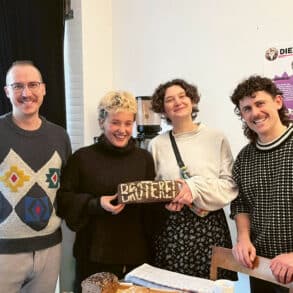From September 2023 to June 2024, the digital learning portal eLearning Waldorf is offering teachers an interactive online course [in German] on racial sensitivity in Waldorf schools. We spoke with course instructors Maria Umbach and Mirjam Nuenning.
Why is a course on racial sensitivity important?
We live in a society where we are influenced by racist thought patterns, beliefs, and prejudices, both conscious and unconscious. These all have a centuries-long tradition. The effects of racism can be seen on an individual, structural, and institutional level, including in our schools. Educational institutions not only have a responsibility to carefully scrutinize their own structures but also to resolutely oppose exclusion and discrimination in any form. We hope to contribute to the normalization of anti-racism work in Waldorf schools and to make it a guiding aspect of the continuing development of Waldorf education.
What does racial sensitivity in a school context look like?
“I don’t want to be included. Instead, I want to question who created the standard in the first place” (Reni Eddo-Lodge, 2018). First, it’s important to create an environment where diversity is an everyday part of enriching our daily experience and a regular part of life, an environment where all members of the school community feel heard and represented. Another important step is for teachers to continually question and reflect on what may be their own underlying biases. An anti-racist stance requires an honest admission of being part of the problem. What deeply internalized racist prejudices shape us, and how does this influence our teaching and interaction with families and children? What perspectives do we convey in our teaching content, and which do we not? What books do we read? What material do we use? What do we exclude or harm through our choice of language? At the school level, we need to ask ourselves whether an atmosphere is being cultivated where racism is able to be discussed. And whether there are resources and expertise within the school to deal with racist incidents.
What would you like the participants to take away from the course?
We hope that participants will take with them the inspiration to continue the critical approach to racism they will experience in the course (or already have previously) and to continue this journey in their own professional environments. Thinking, acting, and living in a way that is critical of racism is a lifelong process that never really ends. There is always more to learn.
More E-Learning Waldorf
Course “Raising Awareness of Racism in Waldorf Schools”
Translation Joshua Kelberman
Images Maria Umbach (Photo by Martin Grünheit), Mirjam Nuenning (Photo by Ralf Steinberge)









